Together with Cornelia Zoller, Meissner launched People in 2015 as a social fashion enterprise that is also dedicated to the principles of zero waste, upcycling, and gender and size fluidity.
“Connecting fashion with people who are struggling was really important for us,” Meissner said. “We are on the verge of fashion, psychology and social work … Always tiptoeing around these different fields but focused on our vision to empower young people by doing design.”
Together with fashion designers and creatives, disadvantaged youth work on collections called “editions”.
People’s edition 6, titled Less, is inspired by the pressure many individuals feel to fit into pre-existing moulds. Taking more than two years to create, it is a response to the overwhelming rules, norms and noise that can pervade a person’s daily life.
With this in mind, you would be forgiven for thinking the clothing’s visual design might take a back seat. But it is quite the opposite: the collection, which is on display to the public at the Nella Beljan Gallery in Berlin until July 23, oozes confidence.
Natural dyes from avocado, walnut and onions produce its rich earthy brown and rose shades; deconstructed stripes are hand-screen-printed using eco-friendly Oeko-Tex Standard 100 certified pigments in the Berlin studio; while other prints dissolve, playing with the theme of letting go.
Elsewhere in the collection are reworked oversized knitted sweaters, hand-crocheted bags, luxurious flowing raw silk trousers, and deconstructed suiting with open edges and loose threads.
People is showing as part of the Studio2Retail programme on the BFW schedule, an initiative organised by Fashion Council Germany (FCG) that gives grants to designers to help them connect with consumers.
Scott Lipinski, the council’s chief executive, said the initiative aims to integrate Berlin Fashion Week into the city’s community while easing access for non-professionals.
“Our jury loved the concepts with a focus on community and the social aspect of fashion. People show that fashion and other arts and crafts give shape and voice to the young people’s ideas,” he explained.
Lipinski said Berlin is a city with commonality at its heart. “It’s not about huge luxury brands but more about celebrating individuality and creating something together that benefits the community.”
Another event open to the public was the fashion runway show from Avenir, a label known for its sustainable denim, which took place on two public streets near Potsdamer Platz.
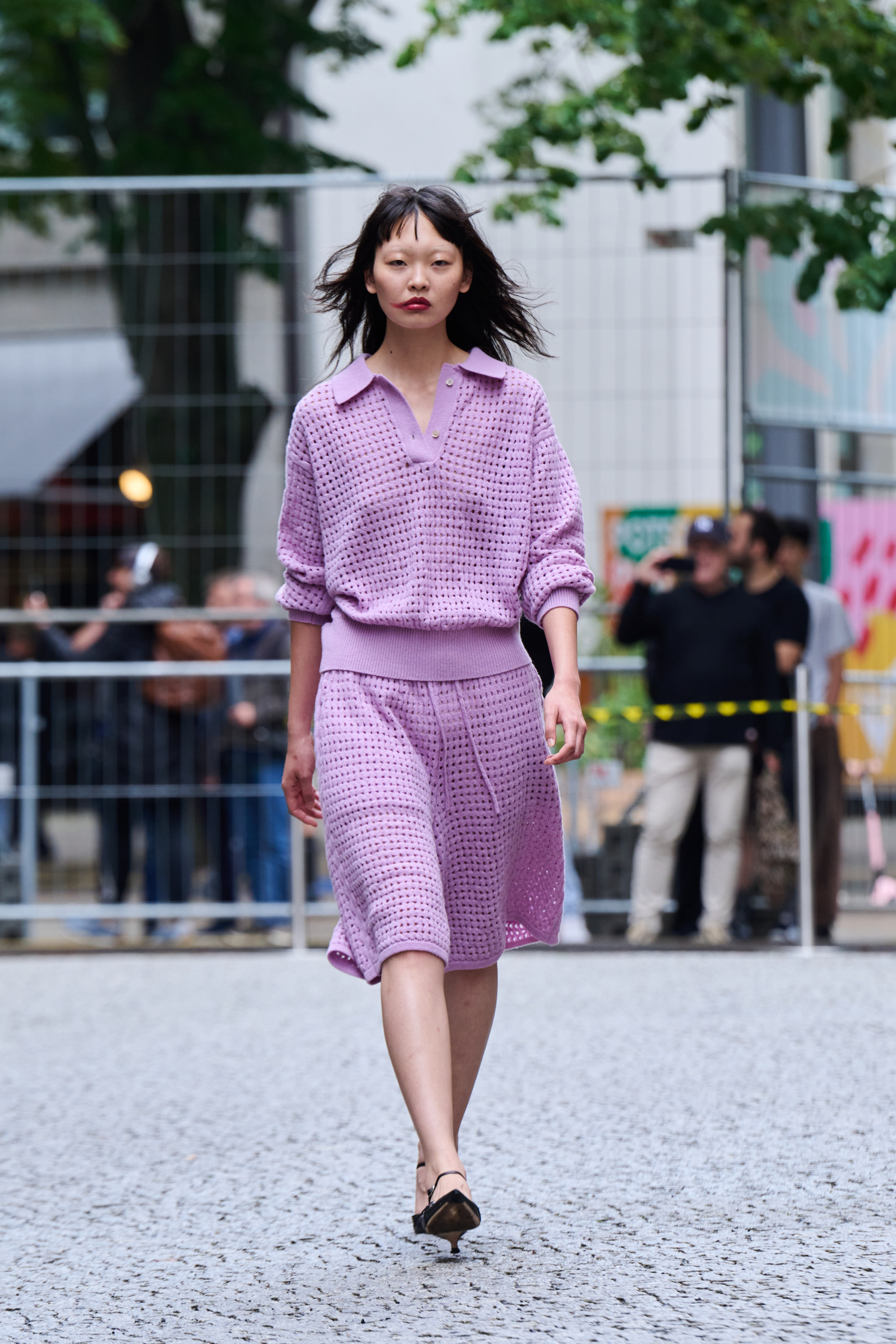
Passers-by stopped and watched as models walked the makeshift runway wearing versatile designs tailored for the modern commuter. A mix and match of colours and textures, Avenir’s spring/summer 2025 collection played with transparency seen in sheer blouses, and clashes of burlap shorts with oversized blazers.
Denim was the stand-out, especially a hand-knitted jacket that took 88 hours to make from shredded fabric.
Sophie Claussen founded Avenir in 2020 with conscious design at its heart – similar to most brands showing during BFW. (In fact, organisers announced plans at the event to instate mandatory sustainability requirements by February 2026 for all on-schedule brands.)
Avenir champions a circular economy model that works to minimise resource waste. To help achieve this, Claussen, who cut her teeth at Lanvin and Givenchy, works with Recovo, a Spanish textile platform offering waste-centric circular solutions for the fashion industry.
“We only use surplus fabric from other companies,” she said. “We simply ring up Recovo and say we need this amount and type of fabric and they usually find it for us by ringing around their suppliers.”
This production model ensures Avenir can scale its collections despite using surplus fabrics – an obstacle that often confounds brands tapping into deadstock (unsellable inventory).
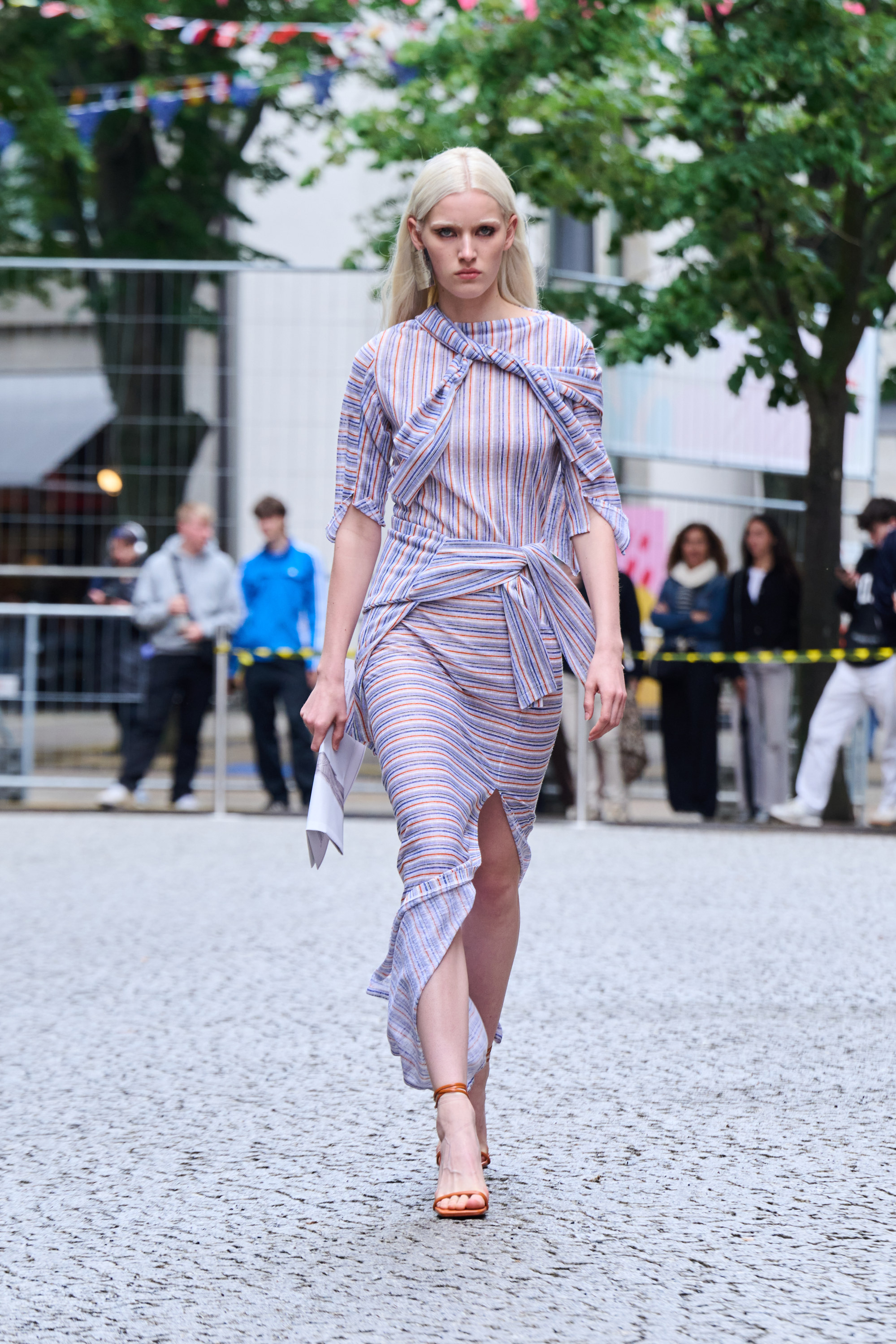
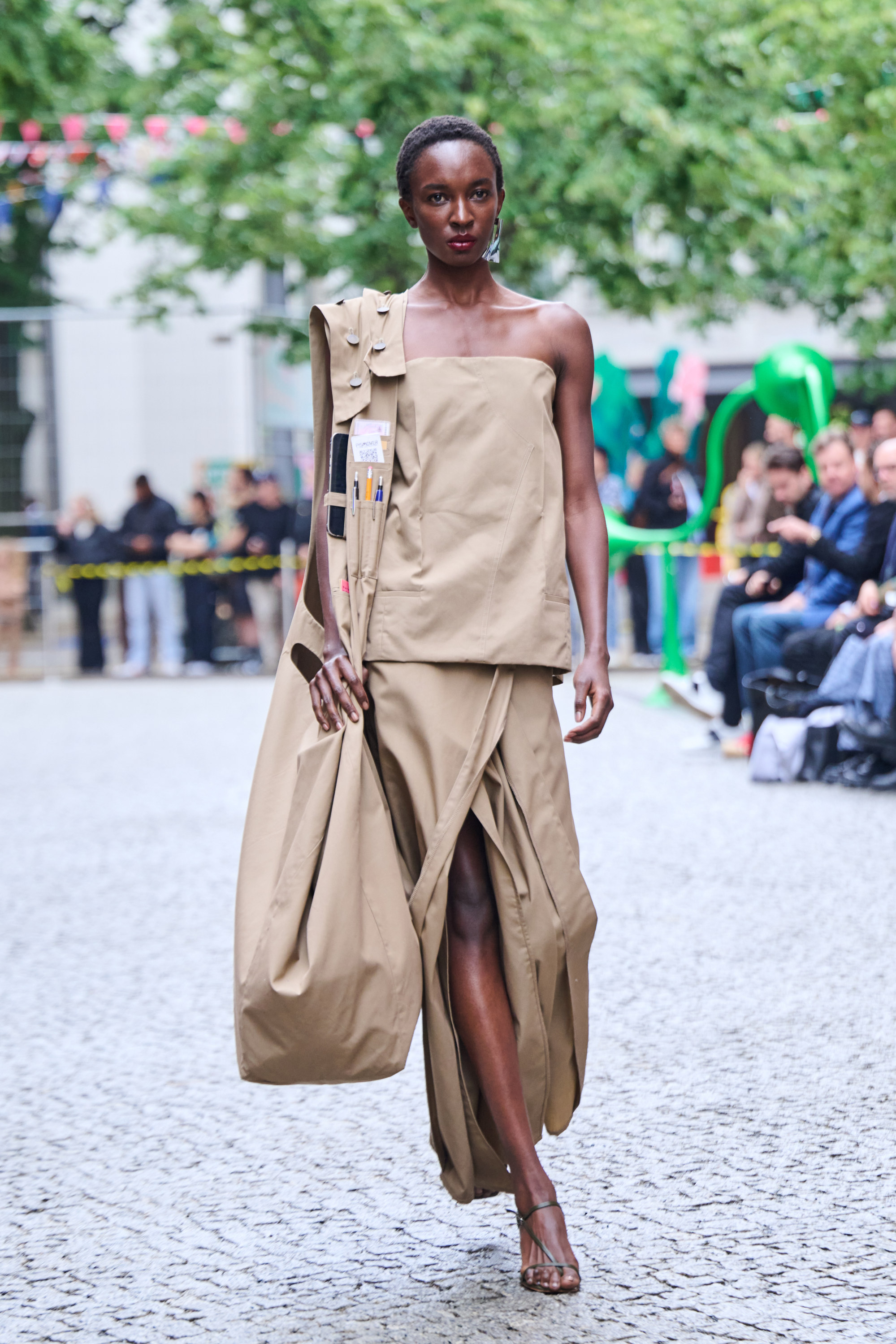
The much-hyped label Haderlump is also focusing on waste in its sustainability initiatives. It is working to cut waste by drawing on deadstock fabrics and having everything made to order locally in Berlin.
Other BFW events saw German designer Natascha von Hirschhausen, known for her zero-waste fashion, work with exhibition organiser CSR.ART to hold an exhibition and panel discussion; and German-Nigerian designer Buki Akomolafe curate the Black in Fashion pop-up event with the Africa-focused label Emeka.
There was also a show from slow fashion brand Rianna + Nina, which has gained global acclaim for its one-of-a-kind pieces made from vintage textiles.
As a growing number of sustainability-focused brands make their way onto the catwalks, Carina Bischof, chairwoman and co-founder of the non-profit organisation Fashion Revolution Germany, thinks much of the groundwork is being laid through talks and events.
For example, as well as its catwalk show, Avenir hosted a textile printing workshop for The Lissome magazine – a publication that aims to build a new pathway for fashion rooted in reciprocity, well-being and a love for craft.
Bischof, who was speaking at Metamorphosis, a series of dialogues about change, said Berlin is fertile ground for sustainable enterprises and brands because of factors such as the city’s cultural environment, which creates a supportive infrastructure, collaborative community and favourable government policies.
“Berlin’s vibrant, diverse and progressive culture fosters innovation and social responsibility. The city’s residents are generally more aware and supportive of sustainable practices, creating a receptive market for ethical brands,” she said after her talk.
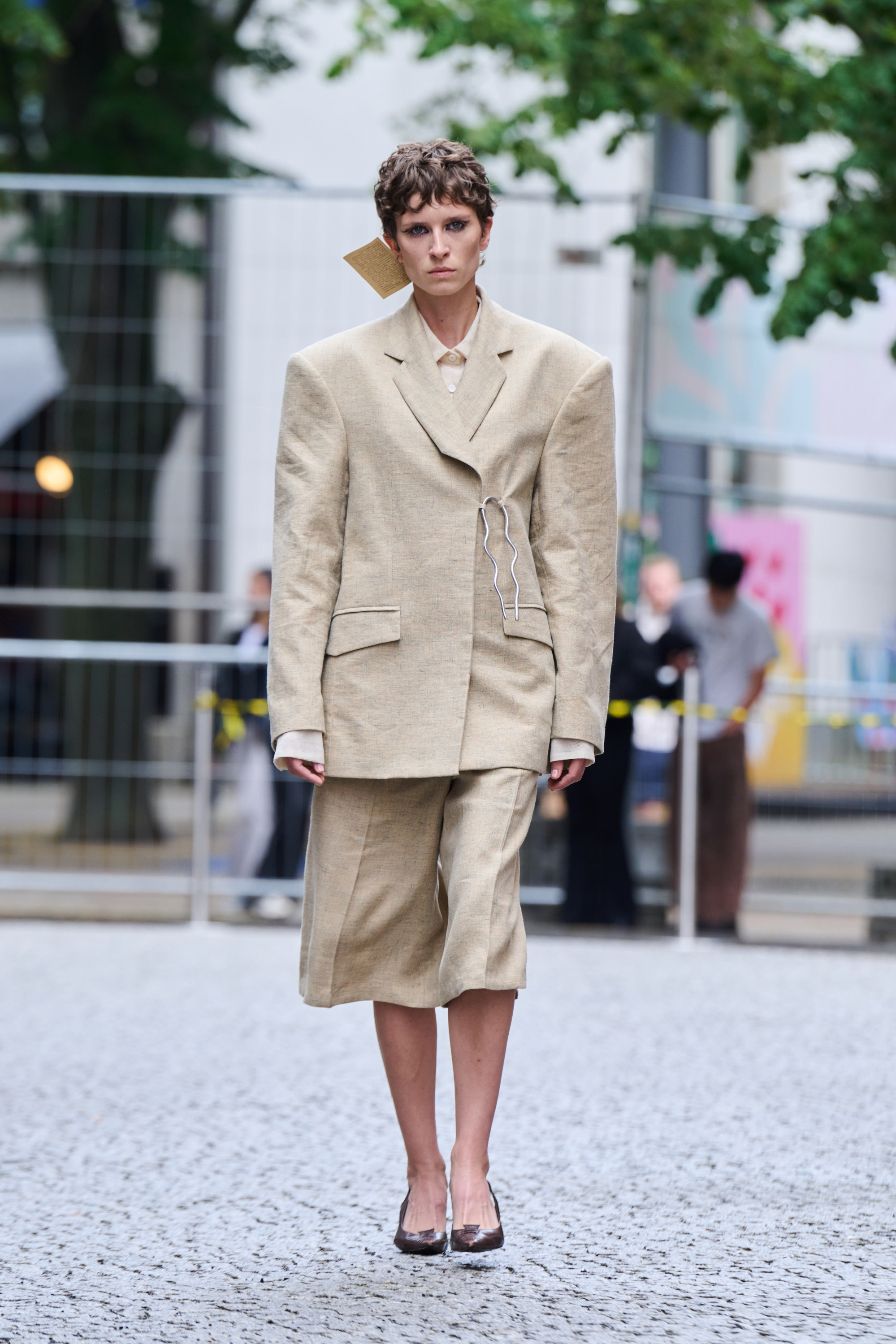
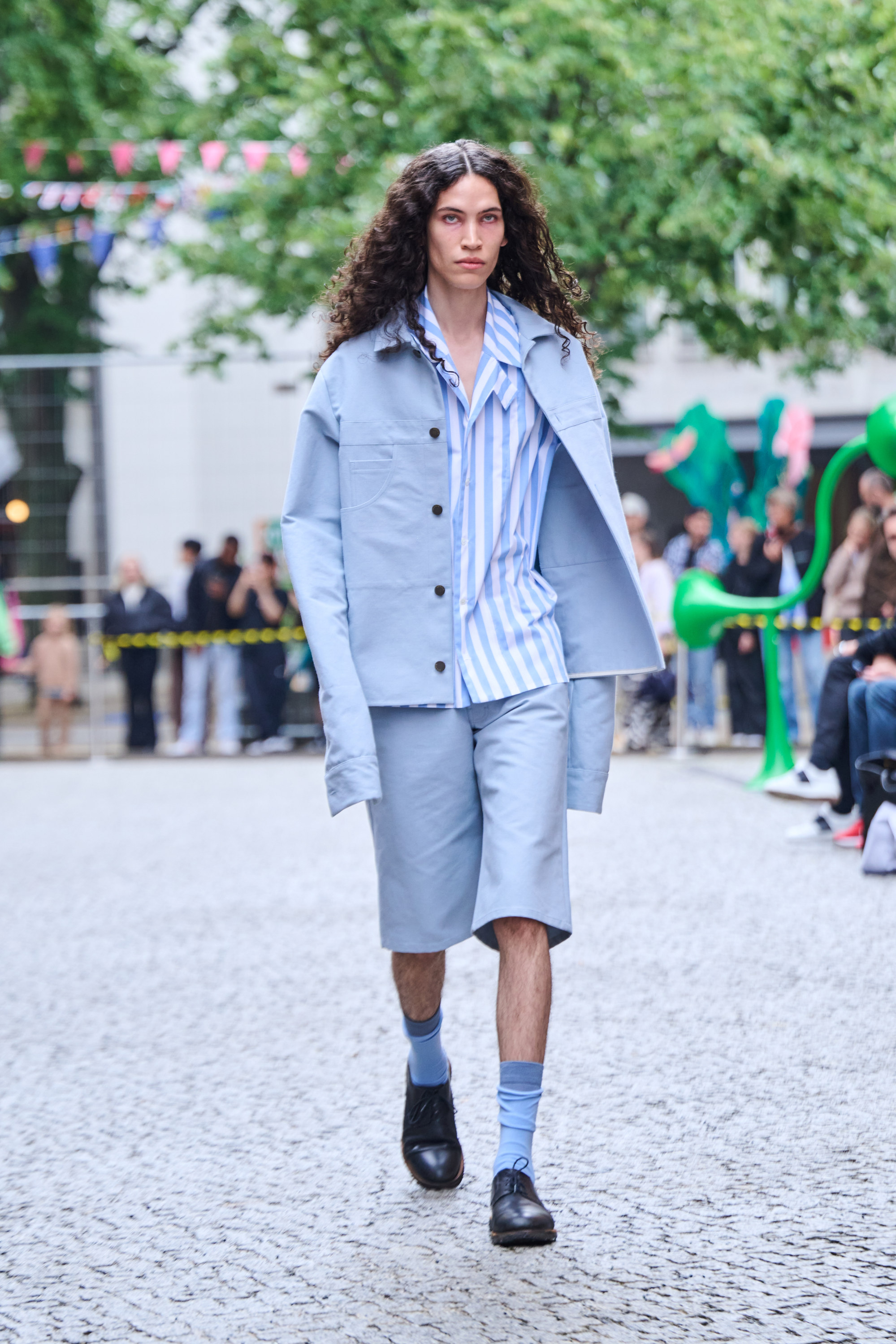
BFW has been undergoing a revamp since 2022, when FCG took over as the main event organiser.
Council chairwoman Christiane Arp underscored that while all on-schedule brands had some kind of sustainability ethos, they also tackled other important issues.
From the opening party to the closing event, there was a clear message from Berlin Fashion Week: community.
“They are all part of a community that’s both local and international,” Arp said. “And that’s wonderful to see, especially in these times.”

